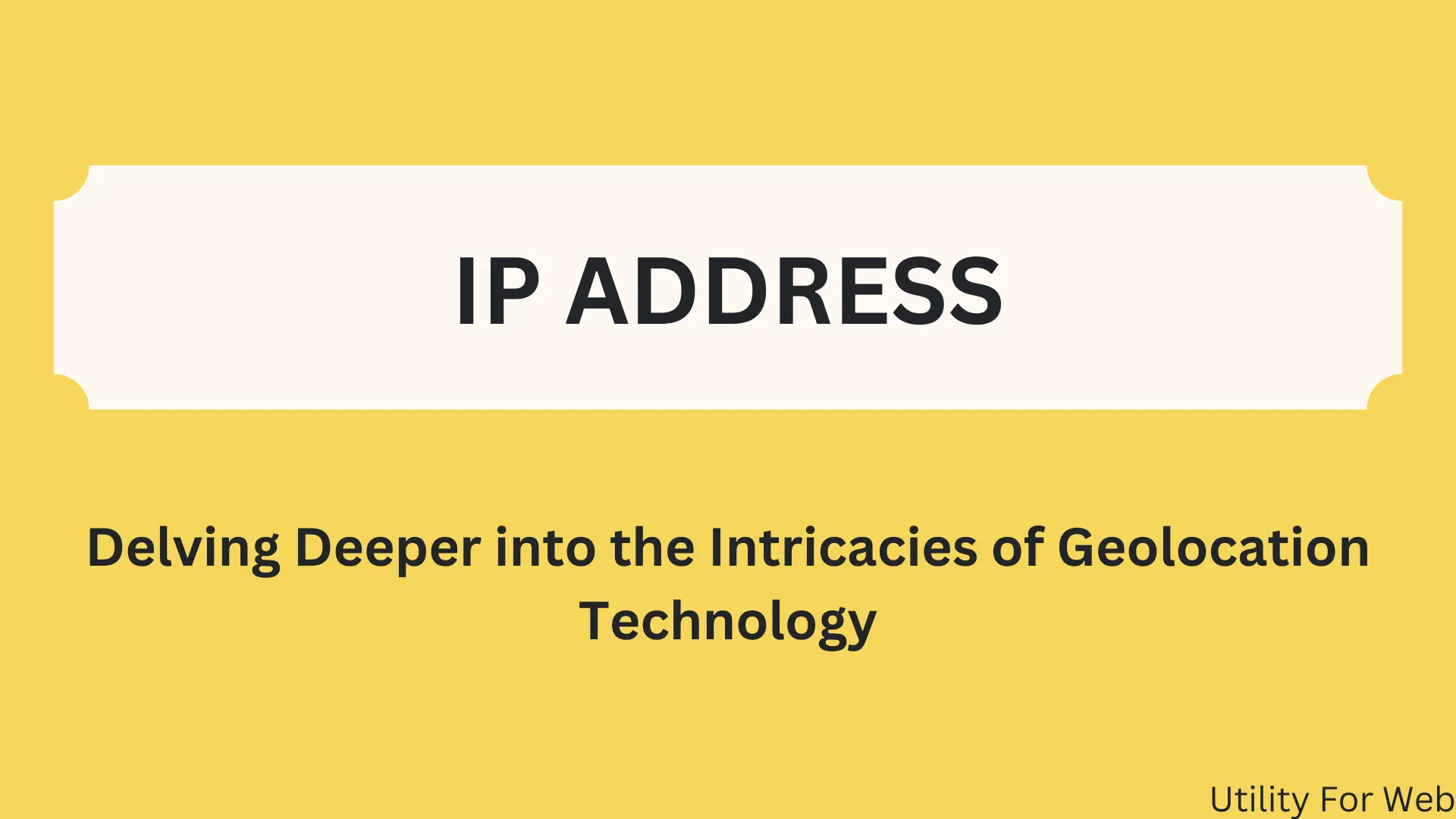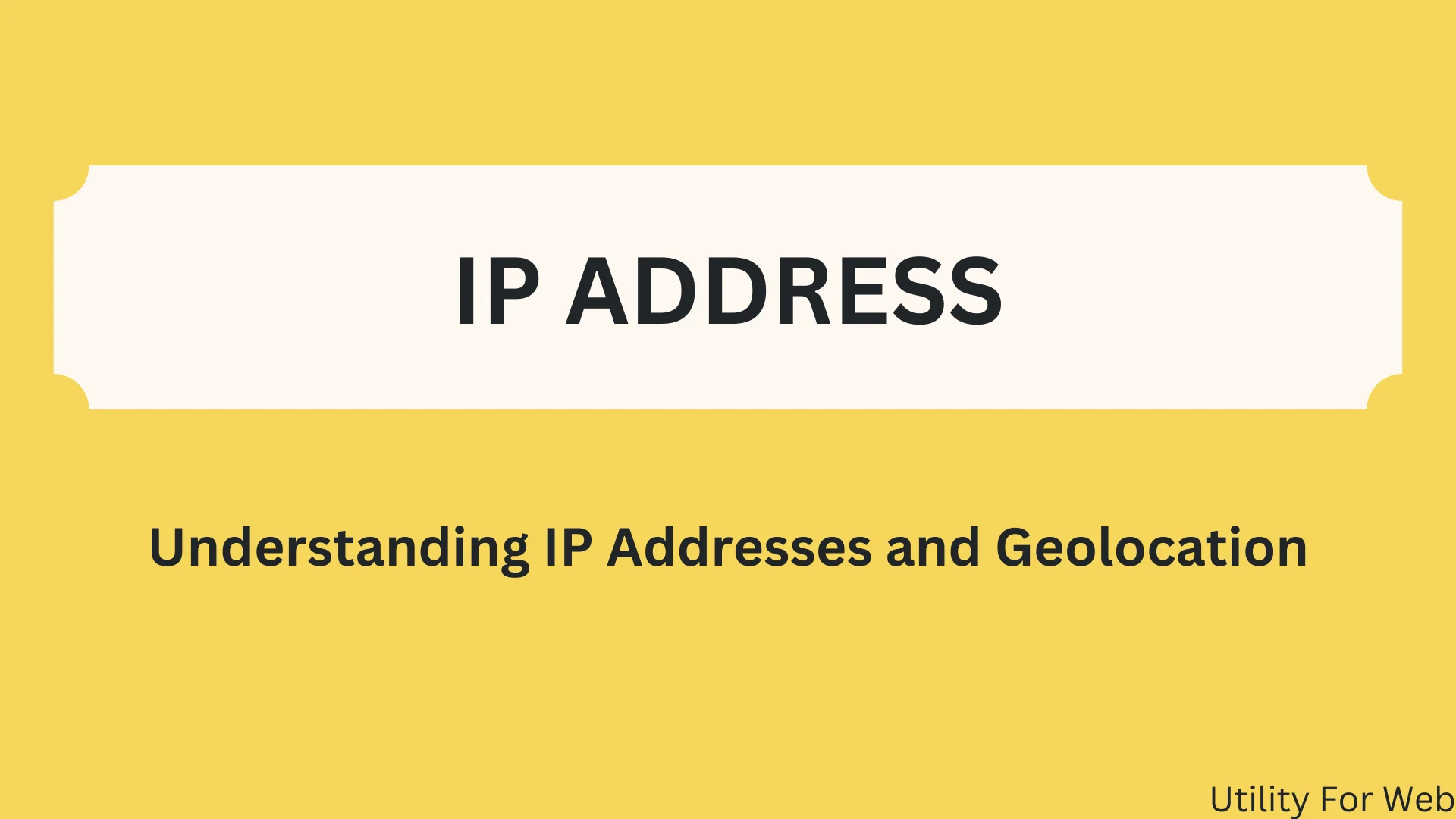
What Is My IP? Exploring My IP Address and Internet Address Lookup with Geolocation
In the digital era, geolocation technology is a pivotal element of internet infrastructure, underpinning a wide array of functions from targeted advertising to enhanced cybersecurity. This technology utilizes a complex network of data sources and algorithms to accurately determine the geographic location of any internet-connected device, yielding insights that benefit user demographics, network optimization, and security measures.
The Foundation of Geolocation Technology
At its core, geolocation technology depends on an extensive database of IP address mappings to physical locations. These mappings are continuously updated through various data sources, including databases, Wi-Fi networks, and GPS satellites. By cross-referencing an IP address with other data points, such as Wi-Fi access points and cellular towers, geolocation services can triangulate a device’s position with impressive accuracy.
Practical Applications of Geolocation
Geolocation technology extends beyond simple location tracking. It provides valuable demographic information based on users' IP addresses, enabling businesses to tailor their services and marketing efforts to specific regions or demographics. For instance, an e-commerce platform can use geolocation data to offer localized product recommendations, promotions, and pricing, thereby enhancing the relevance and effectiveness of marketing campaigns.
Besides, geolocation innovation plays a significant part in optimizing site execution. By coordinating clients to the closest server or substance conveyance organize (CDN) based on their area, businesses can minimize latency and guarantee a consistent browsing encounter. This not only enhances user satisfaction but also elevates search engine rankings and improves overall website performance.
Challenges and Limitations
Despite its capabilities, geolocation technology faces several challenges. Dynamic IP addressing, virtual private networks (VPNs), and the proliferation of mobile devices can complicate location tracking and introduce inaccuracies into geolocation data. However, continuous advancements in technology are refining the accuracy and reliability of geolocation services, ensuring that businesses and individuals can effectively leverage this tool.
Geolocation in Cybersecurity
Geolocation technology also bolsters cybersecurity measures. By identifying the geographic location of network traffic, businesses can detect and mitigate potential threats. For example, if an IP address associated with a known malicious activity is detected accessing a network, immediate action can be taken to block the threat. Additionally, geolocation can help in enforcing geo-restrictions, ensuring compliance with regional regulations and preventing unauthorized access.
Enhancing User Experiences
Another significant benefit of geolocation technology is its ability to enhance user experiences. By providing location-based services and personalized content, businesses can engage users more effectively. For instance, social media platforms use geolocation to suggest friends or content based on a user’s location, while ride-sharing apps use it to match drivers and passengers in real-time.
Future Prospects
The future of geolocation technology looks promising, with continuous improvements in accuracy and applications. As technology evolves, we can expect even more innovative uses of geolocation data, from advanced logistics and supply chain management to immersive augmented reality experiences. Businesses that stay ahead of these trends will be well-positioned to capitalize on the benefits of geolocation technology.
In conclusion, geolocation technology is a cornerstone of the digital landscape, enabling businesses to deliver personalized user experiences, optimize network performance, and enhance cybersecurity measures. By understanding and leveraging the intricacies of geolocation technology, businesses can gain a competitive edge in today’s interconnected world.
Understanding geolocation technology is crucial in today's digital landscape. By leveraging 'what is my IP', 'my IP address', and 'internet address lookup' services, businesses can gain valuable insights, enhance security, and provide tailored experiences to their users. Geolocation relies on extensive IP address mappings and data triangulation, offering precise location data. This technology is vital for targeted marketing, network optimization, and cybersecurity. Although challenges like dynamic IPs and VPNs exist, continuous advancements are refining accuracy. Grasp the control of geolocation to remain competitive and secure in the advanced world. Grasp the control of geolocation to remain competitive and secure in the advanced world.



